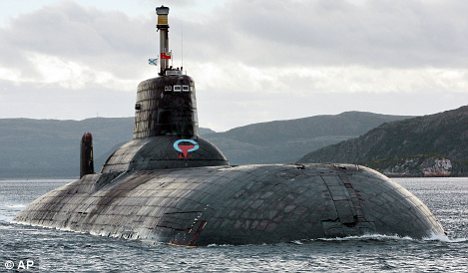At the moment, the only states to operate nuclear submarines are the members of the United Nations Security Council – the United States, Russia, China, France, and the United Kingdom. This is a highly advanced weapons system, which requires mastery of nuclear energy, as well as the complex shipbuilding techniques involved in building the submarine hull. Consequently, it belongs to that class of military technology that distinguishes great military powers from the rest. Keen to join this elite club are two of the emerging nations, Brazil and India. These economic, demographic, and geographic giants have been seeking to acquire the military capability that the global community would consider appropriate to their stature. Thus the developments of nuclear submarines are crucial to their procurement needs.
Neither of these states is new to nuclear submarines. Brazil has sought one for decades, while India leased a Soviet model between 1988 and 1991. In some respects, their motives are similar – prestige, economic development, and credible deterrence. However, their very different strategic situations suggest different motives for the acquisition. Furthermore, while non-nuclear-armed Brazil only seeks a submarine with nuclear reactors, India aims to complete its nuclear weapons triad by acquiring the capability to launch ballistic missiles from the sea.
Under the military dictatorship, Brazil had a secret nuclear weapons programme, aimed mostly at their Argentine neighbours. With the return to democracy, however, Brazil renounced nuclear weapons, despite possessing the technology to build them, and South America remains a nuclear weapons-free zone. However, the aspiration to possess nuclear submarines remained.
In its 2008 National Defence Strategy, the Brazilian government reaffirmed its plans to acquire a nuclear submarine. This was part of a broader commitment to defend Brazil’s territorial waters, a need that became particularly pressing after the discovery of significant undersea oil reserves. This was known as the policy of the “Blue Amazon”, referring to the simultaneous commitment to possessing the capability to defend Brazil’s vast borders on land, and at sea. The ability to stay submerged for much greater lengths of time than a conventional diesel submarine increases Brazil’s deterrent capability. The notorious sinking of the Argentine cruiser ARA Belgrano by a British nuclear submarine is thought to have highlighted the importance of this capacity to the Brazilian Navy.

However, some have pointed out that for the enormous cost of building and maintaining a nuclear submarine, there are far more effective means of policing the seas and protecting sensitive installations like oil rigs, such as a fleet of fast, small patrol boats. This suggests that motives, other than purely strategic ones are at play.
The technological demands of this sort of project would provide a boost to Brazilian industry. The construction of the submarines in the state of Rio de Janeiro, will be a collaboration between the French company DCNS, and the Brazilian Odebrecht. This is done with a view of fulfilling the long-held ambition to be self-reliant for the construction of submarines – a goal with no small strategic significance. Not only will this be a great technology transfer and creator of skilled jobs in the region, but it will also burnish Brazilian exporters’ credentials abroad. Perhaps thinking of replicating Embraer’s successful move to the export market, former President Lula suggested Brazil could one day become an exporter of submarines.
What seems essential to understanding the ambition, especially given its long gestation and recent reaffirmation, is the effect a nuclear submarine might have on Brazil’s international standing. As mentioned previously, only the five permanent Security Council member states currently possess nuclear submarines. Joining their ranks would be like an announcement to the world that Brazil is to be taken seriously as a major power. Not only would the acquisition of this significant power projection capability mark Brazil’s arrival on the world stage, it might also support an implicit claim to regional leadership. Part of the obstacle to Brazil’s accession to the Security Council has been other Latin American powers’ reluctance to cede leadership to the continental giant. While there is small chance of it being used to bully or coerce other Latin American nations, the mere existence of a Brazilian nuclear submarine will throw the power differential between Brazil and Argentina or Mexico into sharp focus, and, it is hoped, eliminate this obstacle to official acknowledgement of Brazil’s role in the world.
There are, of course, risks. Large defence projects such as these are notoriously prone to delays, cost over-runs, and general inefficiency, even in the world’s leading industrial and military powers. Brazil’s nuclear submarine programme has existed for almost four decades, and while the launch of the finished product is scheduled to be in 2025, it would not be particularly surprising if that deadline were missed. Diplomatic cables released by WikiLeaks reveal that the US ambassador refers to the programme as a “politically popular white elephant”.
The potential impact on relations with its neighbours is also unclear. Some Argentinians have expressed concern that the nuclear submarine may be the first step in Brazil going back on its abandonment of nuclear weapons. Though Brazilian officials have denied this, it would be unfortunate for all involved if this historically non-nuclear region were to get involved in a debilitating arms race.




